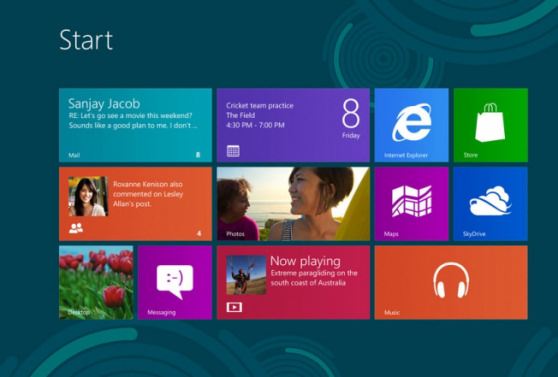[UPDATE: In an email, John Callaham directed us to his final comment on Neowin’s forums: “I still stand by the points that I made in my editorial, and I still greatly admire what Notch has done in terms of his creation of Minecraft.”]
Neowin.net writer John Callaham struck a nerve last Friday, when he wrote an open letter to Marcus “Notch” Persson about Windows 8 and called him a hypocrite for what he says is “a massive overreaction to the OS and its features.” The Minecraft creator responded today with a carefully worded post of his own, titled, “John Callaham: Don’t be a goat murderer.”
Callaham’s story came after two tweets from Persson on Sept. 27, the first of which read, “Got an email from Microsoft, wanting to help ‘certify’ Minecraft for Win 8. I told them to stop trying to ruin the PC as an open platform.” The second read, “I’d rather have Minecraft not run on Win 8 at all than to play along. Maybe we can convince a few people not to switch to Win 8 that way. …”
The tweets triggered an Internet explosion, even prompting Persson to acknowledge that people online were upset about his statements.
But this isn’t the first time the developer has voiced his concerns about the new operating system. In a discussion on Reddit in August, he told the community, “I hope we can keep a lot of open and free platforms around. If Microsoft decides to lock down Windows 8, it would be very, very bad for indie games and competition in general.”
But Callaham is unconvinced the new Windows version is any less open than it was before. In an article called “Notch: Don’t be a hypocrite about Minecraft and Windows 8,” the technology news site reporter wrote, “Microsoft is still letting developers make programs that can be run on the desktop UI with no need for a Windows Store or certification to have them published. That isn’t changing. It’s kind of like objecting to buying a new car because it has an option to run diesel fuel as well as regular gasoline.”
Callaham also mentioned that Games for Windows Live, Microsoft’s direct download game store, didn’t stop Persson from releasing Minecraft on PC, nor did the closed platforms of Android, iOS, and Xbox 360 prevent him from launching successful non-PC versions of the game.
“At best, your attitude sounds like someone who is afraid of anything ‘new,'” said Callaham. “At worst, your words make you look like a total hypocrite when you and your team at Mojang have benefited greatly from having Minecraft sold on closed platforms like iOS and the Xbox 360.”
But Persson remained firm in his response. “I care a lot about my PC, and I want it to stay open and will not participate in anything that would make it more closed.
“For every user Microsoft convinces to use the Modern UI, they have one more user they get to choose what programs they can see. They get to certify programs and control the experience. This is great for them (and [arguably] makes for a smoother end user experience as well, but that’s debatable if it’s good), but it places faaaaar too much power in the hands of a single entity.”
It seems most of Persson’s trepidation comes from the the possibility that Microsoft could disallow unsigned programs in the future and force users toward the Windows 8 store. However, not all industry professionals are condemning the platform. Brad Wardell, the chief executive officer of Stardock, wrote on Kotaku that it was a “usability nightmare,” but added, “I’m a PC developer. I want Windows 8 to succeed. I have Windows games and software in development with release dates far in the future. It’s a pretty big deal to us that Windows 8 not fail.”
Microsoft seems to have the consumer in mind, at least: It plans to offer backwards compatibility for older Windows games and intends to merge its experience with that of its console, the Xbox 360. And for developers, Windows could offer more tools and introduce games to a larger audience.
The latter aspect could, of course, come with a downside: As Persson said, Microsoft could hypothetically emphasize certain programs and applications over others. But whether it would refuse noncertified games entirely is a different matter.
Windows 8 is available to the public on Oct. 26. We reached out to Callaham for comment,
VentureBeat's mission is to be a digital town square for technical decision-makers to gain knowledge about transformative enterprise technology and transact. Learn More



